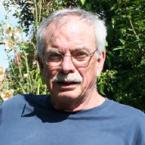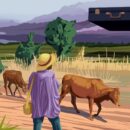Citizenship and land: a potent relationship
Recent research in Burundi on the repatriation of refugees has highlighted the strong link between land and citizenship. The research (“Two People Can’t Share the Same Pair of Shoes: Citizenship, Land and the Return of Refugees to Burundi“) tracked the experience of refugees returning to southern Burundi and (re)claiming their citizenship. Most had been living in exile in Tanzania – some since the early 1990s, and others since 1972. Some were born in exile and had never been to Burundi before. Others left when they were children. But all of them had a strong notion that returning to Burundi signified an end to exile and an opportunity to finally become citizens of their homeland. And the measure of that renewed bond between citizen and state was their ability to recover land.
So what drives this strong linkage? The immediate answer, of course, is that land is a vital economic commodity in a land-dependent country such as Burundi – and it is also in chronically short supply. As a government official told us, “This is a small country with a big population. And people are cultivators.” (Bujumbura, 17 06 09). Yet economically, the return process is proving to be a huge challenge. Those who do now know where their original land was – or worse, whose land is now being used for government enterprises – are being relocated into “peace villages”. Designed by UNHCR and others within the humanitarian machinery as a convenient way of relocating people onto available land – a great idea in theory, but profoundly unpopular in practice as they are seen as a further form of marginalisation. For returnees who do know where there land is yet find other families living on it, government policy dicatates that they share the land.
While sharing is a pragmatic response to a complex problem, from an economic point of view the solution is palliative at best – it is unlikely that many of the families currently sharing land are going to be able to meet the immediate basic needs of their family for long let alone essential costs such as medical and school fees. With neither party receiving any form of compensation, everyone feels that they have lost out and the challenge to generate a livelihood for their families has only got harder.
But land, of course, is much more than an economic commodity, and the redistribution of land is not just an economic and pragmatic exercise: it relates to issues of justice, reconciliation and sustainable peace, and has enormous consequences for wider issues of reintegration and notions of belonging and inclusion. These broader issues are what beat within the heart of the current process, and were dominant throughout the research: if their significance is overlooked, the implications are far-reaching and potentially dangerous.
Access to land – and access to a specific piece of land – was intimately connected with people’s understanding of identity. For many in Burundi, identities are, literally, rooted in the soil. The fact that displacement has created such a fundamental disjuncture between territory and belonging has only heightened the interconnectedness of the two. Those who are returning from exile after decades of alienation, are searching for continuity with their past, which is most tangible through physically returning to the land from which they fled, and on which their ancestors lived. As one informant said, “land connects the current generation to their ancestors… Land, and especially family land, is priceless; it is a gift you get from the ancestors and it is a gift you have for your descendants. Land keeps the extended family together and as such it is like a clan umbilical cord.” (Rutana Province, 02 07 09). As a result, numerous interviewees, when asked if they would be happy to be given an alternative piece of land, said that they would not, as “family land… gives you a name.” (Makamba Province, 12 07 09)
But land also has wider, political implications that relate to notions of political citizenship and re-engagement of the relationship with the state. The political forces that kept them excluded as legal aliens throughout their time in Tanzania are seen as being reversed by the process of returning to Burundi and re-asserting their legitimacy to belong within a national context. The findings show that the realisation of citizenship for returnees is centrally contingent upon fair and effective repossession of land – and specifically family land — signifying an end to the causes of flight that broke their citizenship bond in the first place.
As such, the current process is linked into wider issues of governance and justice and to the way in which people perceive the necessary attributes for (re)assertion of their Burundian citizenship. When asked what it meant to regain their citizenship, repeatedly returnees talked of recovering access to their family land as a primary indicator that they were once more “Burundian” and no longer in a state of exile. Conversely, those who have not gained access to their land talked of how they felt that they had not yet become Burundian once more. As one woman who has been unable to claim back her land said, “We cannot feel that we are citizens as long as we are not treated as Burundians in what should be ours without discrimination. We are currently discriminated against.” (Rutana province, 02 07 09)
Specifically, gaining access to land represents the renewal of a political relationship with the state. The role of government (albeit realised in numerous configurations over the past decades) was seen as both the source of injustice that caused flight in the first place, and the current force behind the redistribution of land: numerous interviewees talked of the unfair distribution of resources by government, and the injustice that this represents, as lying at the heart of the cycles of war and displacement that have dominated the country’s recent history. By the same token, the fair distribution of land was seen as an antidote to such cyclical patterns of violence.
All of this presents a huge challenge for a country that is beginning the long and painful task of reconstruction after decades of violence, political turmoil and displacement. The challenges it faces are hard to exaggerate. The fact that half a million people are able to return to their homes, some after more than three decades in exile, is extremely encouraging and symbolises optimism for the country’s future. Yet the effective reintegration of those who have been displaced is also probably the greatest challenge facing the country.
In order to prevent creating the conditions for future violence, the government is having to grapple with meeting two somewhat competing demands: the fact that land is seen as a critical marker of identity and belonging, and that it is a dwindling resource for livelihoods in Burundi. On the one hand, therefore, systems for resolving disputes over competing claims for land need to be constructed in such a way as to acknowledge and, to the extent possible, address the serious human rights violations of the past. If they are not seen to be just, they risk sowing the seeds of further conflict. At the same time, there is a need to address factors that are imbuing land with such critical importance, and alternative forms of livelihood that are not dependent solely on land must be promoted.
*Dr. Lucy Hovil is Senior Researcher, Citizenship and Displacement in the Great Lakes region, a joint research and advocacy initiative of the International Refugee Rights Initiative and the Social Science Research Council.







I am not sure how people can simply return home after decades of being absent? Surely the land would have been sold for taxes or debts by now so any property that had been owned would be gone? What provisions would be made for the people?
Noticeably, this great article is in reality the finest on this worthy topic. I believe your conclusions and will thirstily anticipate your incoming updates. Saying thanks will not just be enough, for your outstanding clarity in your writing. Most definitely i’ll immediately get your rss feed to keep privy of any kind of updates. Authentic work and much accomplishment in your business enterprise!
It would impact our society greatly, causing many young girls to die (in birth), cause people to lose their jobs (impacting the economy) and we would have a lot of riots because unhappy jobless people become angry people also jobless people can run out of money forcing them to live on welfare or even on the streets, orphanages would be full and the countries would be overpopulated even more than some are already. Take a Look on my Site if you want Umbilical Cord